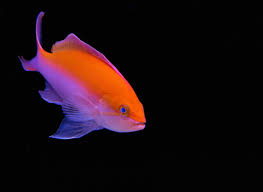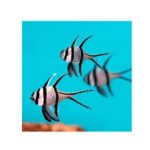
The dragon, a symbol of power, protection, and divine favor, holds significant importance in many cultures around the world, particularly in East Asia. Across coastal regions, the dragon is revered as a celestial being with the power to control the seas, wind, and weather—vital forces for those who depend on the ocean for their livelihood. In the realm of fishing, dragons have long been associated with rituals and prayers that fishermen perform before embarking on their voyages. These ancient practices are deeply rooted in folklore, cultural beliefs, and a reverence for the power of nature.
For centuries, fishermen have believed that appeasing the dragons of the sea was essential for ensuring safe voyages and bountiful catches. These rituals, which often combine prayer, offerings, and symbolic acts, are meant to invoke the favor of the dragons and ensure that the dangers of the sea—storms, rough waves, and maritime accidents—are kept at bay. The role of the dragon in these prayers is not only that of a protector but also as a mediator between the human world and the vast, unpredictable forces of the ocean.
In this article, we will explore the significance of dragons in maritime rituals, particularly the prayers and ceremonies that fishermen perform before setting out to sea. We will delve into the cultural importance of these rituals, their historical roots, and the lasting connection between dragons and the maritime life. From ancient legends to modern-day practices, the dragon continues to serve as a powerful symbol for fishermen, offering them both spiritual comfort and protection as they face the dangers of the open water.
The Dragon as a Symbol of Power and Protection
The dragon is a prominent figure in the mythologies and traditions of various cultures, particularly in East and Southeast Asia. In Chinese, Japanese, Korean, and Vietnamese traditions, the dragon is often seen as a powerful, benevolent creature that controls the elements of nature, including water, wind, and rain. These elemental connections make the dragon particularly significant for those who live by the sea, such as fishermen, sailors, and coastal communities.
In Chinese culture, the dragon is associated with imperial power, wisdom, and good fortune. It is said to be able to summon rain, which is essential for agriculture, but also to control the seas and the weather. In the context of maritime life, the dragon’s role as a weather-controlling deity makes it a crucial figure for fishermen who rely on the calmness of the sea for their daily catches.
In other cultures, such as in Japan and Korea, dragons are similarly revered as guardians of the seas and waterways. They are often thought to protect sailors from storms and guide them safely to their destinations. The dragon’s ability to control water and weather connects it intimately with the sea, making it an essential figure in the lives of those who work on or near the water.
For these coastal communities, the dragon is not just a mythical figure but a real and tangible force that can either bring harm or offer protection. This belief is why fishermen perform rituals and prayers before embarking on their voyages, hoping to earn the dragon’s favor and ensure a safe and successful journey.
Fishermen’s Prayers and Rituals for Safe Voyages
Before setting out to sea, fishermen across East Asia and Southeast Asia engage in a variety of rituals and prayers designed to invoke the protection of the dragons and the gods of the sea. These rituals may vary from region to region, but they all share a common purpose: to ensure the safety of the fishermen and the success of their voyage.
- Prayers to the Sea Gods and Dragons: In many coastal communities, fishermen begin their journeys by praying to the sea gods, dragons, and other divine figures associated with the ocean. These prayers often take place at the temple or shrine dedicated to the sea god or dragon. The fishermen may recite specific incantations or chants, calling upon the dragon to protect them from storms, rough seas, and other dangers.
In Chinese culture, for example, fishermen may pray to Long Wang (the Dragon King), a powerful sea deity who is believed to rule over the oceans and all aquatic life. The Dragon King is often depicted as a dragon with the ability to summon rain and control the tides. Fishermen may ask for his blessing to ensure calm seas and a fruitful journey. In Japan, the Ryujin dragon god is similarly revered, and fishermen may seek his protection by offering prayers and symbolic gifts before embarking on a fishing expedition.
- Offerings to the Dragon Gods: Along with prayers, fishermen often make offerings to the dragon gods as a sign of respect and gratitude. These offerings may include incense, flowers, fruits, and other symbolic items. In some cultures, fishermen may offer fish or other sea creatures as sacrifices to the dragons, symbolizing their respect for the creatures of the sea and their desire for a bountiful catch.
In Chinese maritime cultures, the offerings are often placed on altars or sacred spaces near the sea or within the temple. The act of offering gifts is believed to appease the dragons and ensure their favor. In some cases, fishermen may even release a fish or other marine life back into the water as a gesture of goodwill, allowing the sea to “return” the favor by providing a successful catch.
- Symbolic Acts and Rituals: In addition to prayers and offerings, certain symbolic acts are performed to honor the dragon and invoke its protection. One of the most common rituals is the dragon dance, which may take place before a fishing expedition. This ceremonial dance involves participants wearing dragon costumes and performing elaborate movements to mimic the dragon’s graceful, flowing motion. The dance is believed to summon the dragon’s energy and bring blessings to those who are about to embark on the sea.
Fishermen may also perform other rituals, such as lighting lanterns or setting off firecrackers to ward off evil spirits and ensure good luck on their journey. These rituals are typically accompanied by chants or songs that invoke the protection of the dragon and the sea gods.
- Sacred Locations and Shrines: Many coastal regions have specific locations or shrines dedicated to the worship of sea gods and dragons. These shrines are often located near the shore, where fishermen can visit before heading out to sea. Some of these shrines are built on islands or rocky outcroppings, where they are visible from the water. Fishermen may make pilgrimages to these sacred sites, offering prayers, incense, and other offerings to the dragons and gods of the sea.
In some regions, these shrines are also places of communal gatherings, where fishermen come together to celebrate the ocean, share stories, and exchange knowledge. The act of visiting these sacred sites reinforces the connection between the fishermen and the natural world, particularly the dragons and sea gods they rely on for protection and prosperity.
The Role of Dragons in Coastal Communities
In many coastal communities, dragons are not only seen as protectors of fishermen but also as central figures in the social and cultural fabric of the community. The belief in the dragon’s power to control the seas and weather creates a deep sense of reverence and respect for the ocean, and for the creatures—real and mythical—that inhabit it. The rituals surrounding dragons and the sea gods serve as a reminder of the fishermen’s dependence on nature and the need to live in harmony with it.
For fishermen, the dragon is a constant reminder of the dangers and rewards of the sea. While the ocean can provide abundance and livelihood, it can also be unpredictable and perilous. The dragon’s role as a mediator between the human world and the forces of nature allows fishermen to approach the sea with a sense of reverence and humility, knowing that they must respect the power of the ocean and seek the favor of the dragons before venturing out.
Dragon Festivals and Celebrations of the Sea
In addition to individual rituals, there are also festivals dedicated to dragons and the gods of the sea. These festivals, which take place throughout the year, celebrate the connection between humans and the ocean, and offer an opportunity for communities to come together and honor the dragons. During these festivals, there may be processions, dragon dances, and other performances that involve elaborate costumes, music, and rituals.
One of the most famous dragon-related festivals in China is the Dragon Boat Festival (Duānwǔ Jié), which takes place on the 5th day of the 5th month of the lunar calendar. While this festival is primarily focused on honoring the memory of the poet Qu Yuan, it also has deep connections to dragon worship, particularly in the context of water and maritime life. The dragon boats used in the festival are symbolic of the power and grace of the dragon, and the races are thought to invoke the dragon’s favor for a safe and successful harvest.
Conclusion: A Spiritual Connection to the Sea
Dragons play an essential role in the maritime traditions of many coastal communities. As powerful and benevolent beings, they serve as protectors of the sea and the fishermen who depend on it. Through prayers, offerings, rituals, and festivals, fishermen seek the favor of the dragons to ensure safe voyages, calm seas, and bountiful catches. These rituals are not only a reflection of the fishermen’s spiritual beliefs but also a reminder of the deep connection between humans and the natural world.
The dragon’s role in these prayers and rituals goes beyond its status as a mythical creature. It represents the hope, reverence, and respect that fishermen hold for the forces of nature, and it continues to serve as a powerful symbol of protection and prosperity in the maritime world. As long as the sea remains a central part of human life, the dragon will continue to inspire awe, devotion, and respect, ensuring its place as a guardian of both the oceans and the people who sail upon them.









